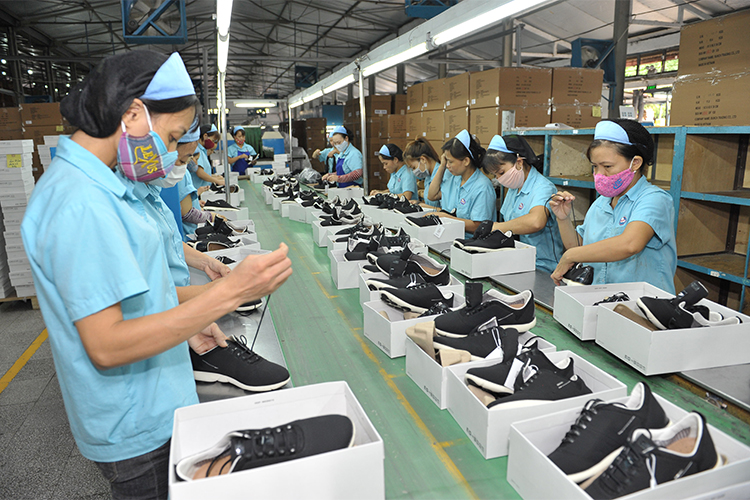No products in the cart.

Mass-Produced Shoes – The True Price the Environment is Paying
In the world of fast fashion, footwear is among the most mass-produced items each year. Millions of pairs are churned out from factories across the globe to keep up with ever-changing consumer demands. Yet behind the trendy looks and affordable prices, mass-produced shoes carry a heavy environmental cost – one that we, as consumers, are indirectly responsible for.

Most industrial shoes are made from synthetic plastics, artificial rubber, and faux leather – materials that require large amounts of petroleum, chemicals, and energy to produce. This process not only consumes natural resources but also emits CO₂, worsening climate change. To manufacture a single pair of faux leather shoes, dozens of liters of water and various harmful chemicals may be used, polluting local water sources and soil in production areas.
What’s even more concerning is the short lifespan of mass-produced shoes. After just a few months, the glue starts to peel, the soles wear down quickly, and the shoes are discarded. Unlike food or natural materials, shoes made from synthetic plastics and artificial rubber can take hundreds of years to decompose. This means that every discarded pair adds to the enormous volume of waste our planet is struggling to handle.
Mass production also comes with social costs. To cut expenses, many factories are located in developing countries, where labor is cheap but working conditions are harsh and unsafe. As a result, the low price of an industrial shoe is actually paid for with health, the environment, and the rights of workers.

And that is exactly why more and more young people are choosing sustainable shoes – pairs made from eco-friendly materials. Because shoes are not just a fashion accessory; they are a choice that reflects how we want to walk alongside this planet.


Leave a Reply